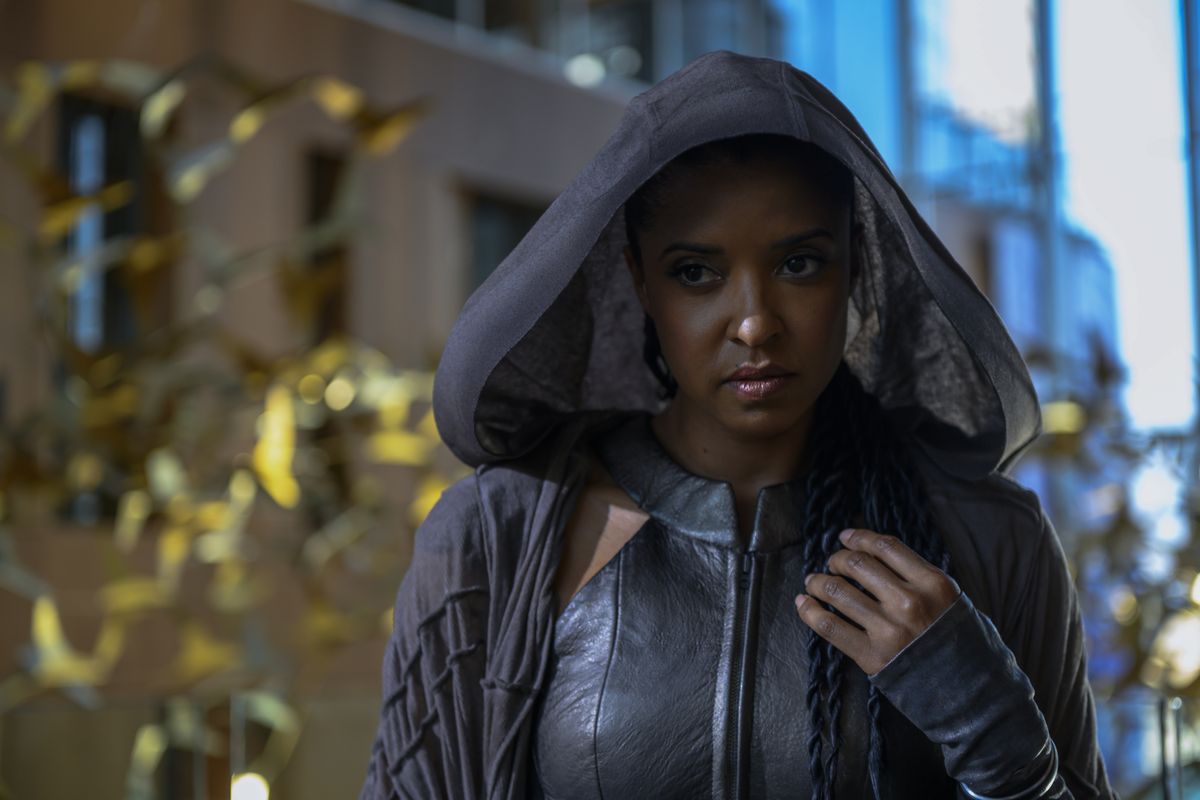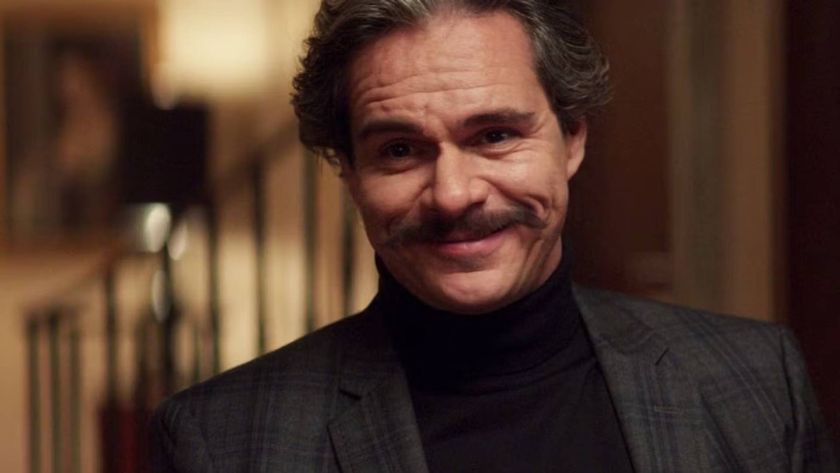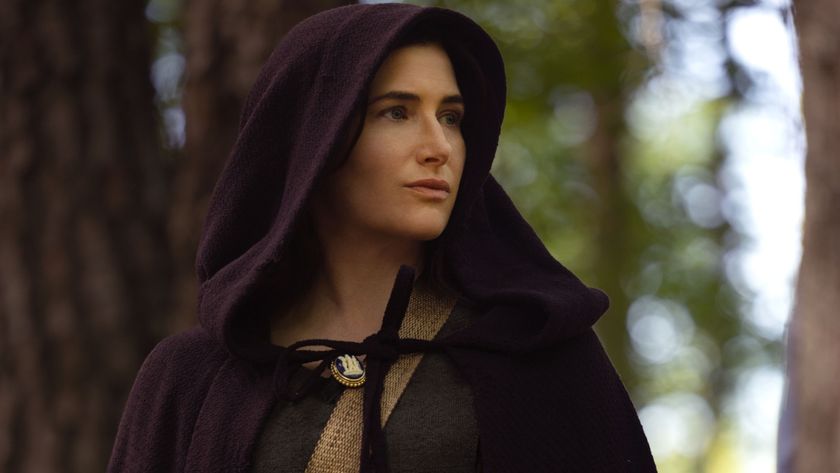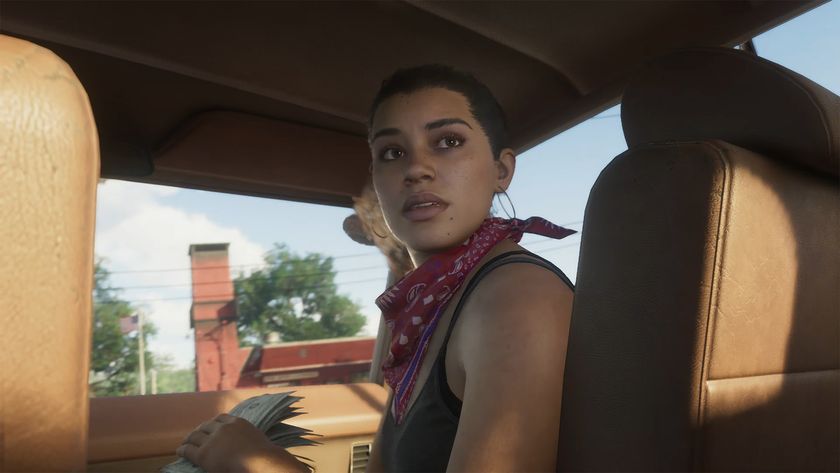12DOVE Verdict
Altered Carbon's return is an ensemble endeavour that satisfyingly ties up season arcs while teasing storylines yet to be explored. We can't wait for more!
Why you can trust 12DOVE
Altered Carbon season 2 has arrived on Netflix and, just like the futuristic series' colourful array of characters, it’s wearing a new and improved face.
While the show's slick and cinematic cyberpunk aesthetic has not been lost – the streaming service has certainly not skimped on the visual effects – there have been changes elsewhere. Anthony Mackie steps into the sleeve of Takeshi Kovacs, previously played by Joel Kinnaman, and there's been a change in showrunner, with Alias writer Alison Schapker replacing series creator Laeta Kalogridis.
This shake-up in front-of and behind-the-camera is certainly welcome; season 1 was ambitious in its world-building but often lost itself in convoluted storylines, gratuitous violence, and problematic subplots. Season 2's eight episodes, though, are tighter and more confident.
Set 30 years after season 1, Altered Carbon returns to the same dystopia where humans store their consciousness in digital “stacks” and endlessly transfer it from one body – or “sleeve” – to the next. That technology (only available to the very rich) was discovered on Harlan’s World, the home planet of Kovacs, where season 2 is primarily set.
Kovacs – The Last Envoy (Envoys being a dying breed of "super soldiers") – and his A.I. friend Poe (Chris Connor) return to Harlan’s World after spending the last three decades searching for Kovacs' long-lost love, and leader of the Envoys, Quellcrist Falconer (Renee Elise Goldsberry). Yet again, a wealthy member of the upper-class has asked for Kovacs' help – this time for protection against a mysterious killer targetting the planet’s founders.
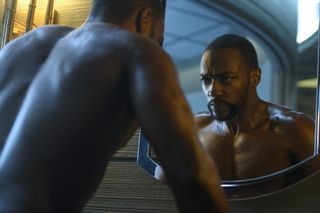
With a new super-powered sleeve to inhabit, Kovacs has more than just a super-assassin to deal with. Harlan’s World’s power-hungry new governor Danica Harlan (Lela Loren) and militant colonel of the Protectorate – the ruling intergalactic government – Ivan Carrera (Torben Liebrecht) prove formidable foes. Luckily, Kovacs has a few allies. Along with his glitchy A.I. partner, our protagonist makes an alliance-of-sorts with no-nonsense bounty hunter Trepp (Simone Missick), while the sharp A.I. being Dig 301 (Dina Shihabi) joins later in the season.
From the opening few minutes, Altered Carbon season 2 feels like an altered show that is richer in narrative, character, and plot. Mackie’s version of Kovacs has been around for some time, so the character has shaken off much of the sulkiness of Kinnaman’s iteration, allowing for more nuanced emotional moments to help the viewer connect with him. The Marvel star has previously brought a certain warmth to most of his performances and, through Kovacs, he balances it with precise, ruthless line deliveries that remind you just how dangerous this person can be. The show also expands the role of Will Yun Lee – Takeshi Kovacs in the original flesh – in a brilliantly clever way that somewhat makes up for the fact he featured minimally in season 1, while a white actor got to play this Asian character for most of it.

Clearly, the white-washing backlash wasn’t the only bit of criticism Schapker and the writers wanted to address, because the real MVPs of the season are the women. Season 1 was criticised for gratuitous sexual violence and scenes of female nudity, but season 2 has returned with far more respect for the feminine body and mind. Falconer, Trepp, Dig 301, and even Danica Harlan are afforded far more agency and their experiences of trauma, consent, and morality are explored with a deft touch.
One could argue that Missick’s Trepp is simply Misty Knight in space. However, where the Marvel detective’s motivations were governed by the actions of Luke Cage, in Altered Carbon, this bounty hunter has a mission of her own and people to take care of. Goldsberry’s Falconer, too, gets to explore the depths of her past and mental state while also getting to kick some serious butt. Violence, for better or worse, has been one of Altered Carbon’s unique selling points, and this time the fight sequences serve to push the plot forward instead of being brutally superfluous.
By the season finale, it becomes clear that this has stopped being the Kovacs show and, instead, an ensemble endeavour that manages to satisfyingly tie up a season arc while teasing storylines yet to be explored. There are still moments of confusion when it comes to in-world terminology and the backstory of certain characters, but the Altered Carbon writers have done well to address the problems of the past in order to deliver a penetrating season 2 narrative with a bright future.
Hanna Flint is a freelance film and TV critic who has bylines at 12DOVE, Total Film magazine, Variety, BBC Culture, The Guardian, British GQ, IGN, Yahoo Movies, and so many other publications. Hanna has also appeared as a critic and commentator on Sky News, Sky Cinema, BBC World Service, and BBC Radio 5 Live, and can be frequently found as a Q&A host at MTV UK, BFI, and BAFTA. When Hanna isn't writing reviews, interviews, and long-form features about the latest film and TV releases, she specializes in topics concerning representation and diversity.
Most Popular





